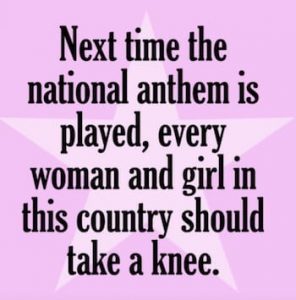“I hate bullies! Because bullies don’t just bully you, they take away your dignity!”–“Phil Berquist” (Daniel Stern), City Slickers
I actually had been thinking about bullies long before Putin invaded Ukraine, but now it has come to a fever pitch. There is no avoiding the fact that bullies seem to be having their moment in the sun these days. But why so much now?
Bullies seem more potent nowadays. When I was a kid, bullies were a one-off, the loner, maybe with a couple of stupid sidekicks. They wanted to be master and chief and so they would go looking for the next two least popular thugs and recruit them–perhaps with promises of power–to be their strong men. In school–and often on television–though, they worked alone. They were the “dumb” ones, the ones who didn’t do well in school, came from impoverished means, unclean and unkempt. And their sole purpose was to make the rest of us–or the protagonist–feel as miserable as they did. They were always in the shadows, never main stage but present enough to cause a certain level of anxiety. Like the worst they could do was to make you look carefully around every corner before proceeding. Barely above the level of cartoonish.
Now bullies are having a field day, stoked by the support of a few in power. Though still small in numbers, comparatively, they have emerged as if they are cicadas, having spent the last seventeen years strengthening their soft larvae bodies on the sustenance of dark places, waiting for the moment when the temperature is ripe for their appearance. In a recent article in The Atlantic author Olga Khazan postulates “Why People Are Acting So Weird,” (her description of ‘Crime, “unruly passenger” incidents, and other types of strange behavior [which] have all soared recently.’) She calls it “weird” that Will Smith got up on stage and “smacked Chris Rock…” She goes on to say that “people have been behaving badly on smaller stages for months now” and lists some evidence from a “man…arrested after he punched a gate agent at the Atlanta airport” to “a maskless man on a ski shuttle screaming” about another passenger wearing a mask by personal choice. Drivers plowing into pedestrians, health-care workers being abused by violent patients, increases in carjackings and car thefts, and school board meeting “hissy fits” are all examples of the “weirdness” being displayed by US citizens. In her article she shares the opinions of various experts who point to increased stress, expanded levels of drinking and doing drugs, and social isolation as being significant factors in why we’re misbehaving. But no one focused in on another factor that I believe is blatantly obvious, save one mental health expert that Khazan quoted in her article, Tom Insel. Insel, former director of the National Institute of Mental Health and the author of Healing clarified that mental illness accounts for a diminishingly small number of cases of “weird behavior” when he stated, “I think those are assholes.”–referring to the majority of ornery folks. I postulate that the elephant in the room of assholery is that the bullies have been ejected from the earth. They have been released and given permission to unleash mayhem with abandon. I believe in their heart of hearts, bullies are bullies and only need an opportunity, not an excuse. Of course, this is not to say that bullies don’t suffer from some emotional and mental issues but its simply not fair to pin their behavior on mental illness.
The bully movement in America (the US) is nothing new. There have always been–and will always be–bullies. But bullies now have the stage; they are no longer relegated to the back alleys, underground lairs, and secret clubhouses. The Ku Klux Klan (founded in December 1865) have removed their masks, Neo Nazis (keeping Hitler’s dream alive post-World War II) are saluting in public, Proud Boys (established during the 2016 election cycle) have been named publicly from the presidential podium, and others finally had their heyday with what appears to be the culmination of the Movement Conservatives’ efforts to take over the country.
Movement Conservatives (a moniker they chose for themselves), according to historian Heather Cox Richardson, who specializes in the Reconstruction and the history of the Republican party, began as “big businessmen [who] loathed business regulation and the taxes necessary to fund social welfare programmes. [following FDR’s passing of the New Deal]. They carped that the liberal consensus was socialism.” Richardson states that, “Movement Conservatism was a fringe force from the 1950s until the 1980s, when voters elected Movement Conservative Ronald Reagan to the White House. But even then, their control of the Republican Party was not a given.” So what’s different now? The cicadas are rising. The party of Lincoln, of Eisenhower, of Nixon appears to have finally succumbed to the power elites. No longer is the Republican party simply the more conservative, it is now the truly radical. And that radicalism gave birth to a new, more sinister era with the election of Donald Trump.
Donald Trump, it turns out, is the penultimate bully. Just consider some of the traits of a bully personality as identified by VeryWell Family:
- Impulsiveness
- Anger management problems
- Controlling, rather than leading
- Prone to frustration and feeling annoyed
- Lacking empathy; not sympathetic to the needs or desires of others
- Blames victims by saying things like, “If that geek didn’t look so stupid, I wouldn’t have to hit him.”
- Difficulty following rules
- Little respect for authority
- Views violence in a positive way, such as a form of entertainment or a good way to get needs met
- Perceived as popular
Sound familiar? In my mind, the most insidious–and dangerous–of all is “perceived as popular.” Some bullies seem to only have to act popular to be perceived as popular. And once that perception gains traction everyone who admires bullies and the power they wield wants to hop on their coattails. And they either are–or convincingly act like they are–completely captivated and persuaded by every word that ushers forth from the bully’s mouth and every action he/she takes. The last thing they want is to be seen as not part of the bully’s inner circle.
On the surface, the inner circle might look like the they have the most power. But the real power is with those who see the bully light in the eyes of his minions and work to exploit that. That is where the real traction occurs. And in the case of Donald Trump, his minions include white supremacists, far-right extremists, and the marginalized (at least in their minds) middle class who have lost any real power in government. And to the power elite’s delight, Trump has given those folks a voice and a cause–the cause of hatred toward “the other”–and the idolatry of unrestrained power. Trump has unleashed the other bullies.
And while Trump initially gave people the right to be bullies, the leaders of the Movement Conservatives have expanded that right into every facet of society. It is okay now–even as a government official, such as Florida Governor Ron DeSantis–to bully someone for wearing a mask. It’s okay to threaten Secretaries of State for not calling the 2020 presidential election for Trump. It’s okay to scream at and threaten local officials for making the decisions for local schools even though they have been given that power from the get go by voters. And it’s apparently okay to physically storm our nation’s capital building, causing death and destruction, and threatening even more. Movement Conservatives would like to take our society back to pre-New Deal times and the bully minions create just the cover they need to accomplish that–while the rest of us–particularly those who have a more conservative bent and choose to keep voting “Republican,” even though that moniker means nothing more these days politically than “obstructionist”–let them do so.
Unless those of us in the majority in this country find a way to stand up to the bullies, we will surely follow suit with other countries whose democratic dreams have been dashed by their ruling bully. But it’s hard for some as they see the bully as the one with the strength–and strength (as a bully wields it) is paramount. Paul Waldman, in his opinion piece for the Washington Post, writes “There was a time in American history when foreign crises were considered a moment for unity. We said ‘politics stops at the water’s edge,’ meaning that partisanship had to be put aside so the country could show the world a united front, and both parties usually agreed. The public acted that way, too. Presidents’ approval ratings would rise whenever we found ourselves in any sort of conflict with a foreign adversary; this was called the ‘rally ’round the flag effect,’ and it occurred even when things went badly…But no more. Even the most straightforward of foreign policy challenges become yet another opportunity for the opposition to say the president is a failure and a villain, which is what Republicans are doing now as we confront Russian leader Vladimir Putin’s invasion of Ukraine.” Movement Conservatives are using this current affront to democracy as an opportunity to build their case that they are the stronger ones. And strength is all-important to bully-worshippers. As Waldman continues, “One of Donald Trump’s legacies is that in some GOP quarters, Putin is now regarded as akin to a hero. That starts with Trump himself, who reacted to the invasion by calling Putin’s aggression ‘genius,’ ‘smart,’ and ‘savvy.'” Waldman implies that the most important talking point among the GOP [nee Movement Conservatives] now is to call out Biden’s (and by extension, his party and anyone who voted for him) weakness.” He continues, “So whether you’re a Putin fanboy or a cold warrior, you can agree that the real problem here is weakness. Why is this crisis happening? Because Biden is weak. What should America do now? Not be weak, because Biden is weak. Is your favorite baseball team going to win the pennant this year? They would, if Biden wasn’t so weak.”
‘Biden weakness invited Russian aggression, Republicans say,’ reads a Fox News headline. Biden is ‘the weakest president that America has ever had,’ says former Trump administration ambassador to United Nations Nikki Haley. ‘No one fears this pathetic old geezer’ says the National Review.”
Bully tactics equals strength and strength means power and power means control. A lack of control is a scary thing; it means anything can happen and that thing is often bad. There are people in this world who support their fascist leaders because they have come to depend on them for at least some modicum of normalcy and safety. Bloomberg News reports that a new poll finds 83% of Russian citizens approve of Putin’s actions in Ukraine, the highest approval rating since 2017. Among at least older Russians, the loyalty extends into daily life as well. Isaac Chotiner, in his interview of Masha Lipman (a Moscow-based political analyst who has written extensively on Putin’s regime) published in The New Yorker quotes Lipman, “He [Putin] brought back stability and he was able to deliver prosperity because of the high and rising price of oil…And he was able to balance his top priority of political monopoly with socioeconomic goals of national development and economic growth.” If you had lived in pre-Putin Russia the stability he brought would seem to outweigh any indiscretions on his part politically. As long as your daily life saw improvement why worry about his machinations on the world stage or behind closed doors. There are those in our own political systems who would like to see the same among our populace. And the Movement Conservatives are riding that wave of popularity. The once dignified GOP has given over to support for the most outrageous, ludicrous, and dangerous bully candidates–even if they agree that these folks are no more qualified to be leaders of the country than a ham sandwich–because it will ultimately get them what they want: total control of the country and one-party rule which just continues to enrich the ultra-rich. When asked in an interview by Jonathan Swan on Axios how Mitch McConnell could go from “from condemning Trump over Jan. 6 to saying he’ll absolutely support Trump if he’s the nominee in 2024 he responded, ‘I think I have an obligation to support the nominee of my party…I don’t pick the Republican nominee for president.’” The ultimate bullies will absolve themselves of the bully tactics of their minions as if their hands are clean and they are only delivering what others want…the chance to be bullies and a target list of enemies to bully.
“In brief, we govern by a mixture of lying and bullying.”
― Aleister Crowley
“Decades ago, George Orwell suggested that the best one-word description of a Fascist was “bully,”
― Madeleine K. Albright, Fascism: A Warning
“We are supposed to call poison medicine and we wonder why we’re always sick.”
― Stefan Molyneux
https://www.theatlantic.com/politics/archive/2022/03/antisocial-behavior-crime-violence-increase-pandemic/627076/
https://www.theguardian.com/commentisfree/2017/jan/29/trump-america-more-things-change-more-they-stay-the-same
https://www.brainyquote.com/quotes/heather_cox_richardson_1118112
https://www.verywellfamily.com/characteristics-of-a-bully-2609264
https://www.washingtonpost.com/opinions/2022/02/23/gop-biden-weak/
https://www.foxnews.com/politics/biden-weakness-russian-aggression-republicans
https://www.foxnews.com/media/nikki-haley-putin-ukraine-biden-weak-china-taiwan-special-report
https://www.nationalreview.com/2022/02/no-one-fears-this-pathetic-old-geezer/
https://www.bloomberg.com/news/articles/2022-03-31/russians-embrace-putin-s-ukraine-war-as-kremlin-muzzles-dissent
https://www.newyorker.com/news/q-and-a/how-putin-controls-russia
https://www.axios.com/mcconnell-trump-interview-axios-jonathan-swan














